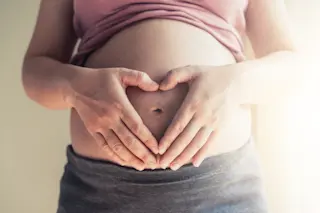The placenta is a unique organ. The temporary body part forms in the uterus during pregnancy and supplies the developing baby with nutrients and oxygen while also carrying away waste products. The organ is also a common source of pregnancy complications.
Recently scientists have wondered whether microbes might be to blame. Some research has suggested that, like the gut, a host of bacteria colonize the placenta. If so, this collection of microorganisms could be what makes the difference between healthy and complicated pregnancies. But now in new research published Wednesday in the journal Nature scientists show the opposite is true: the placenta is sterile. The discovery helps quell a long-standing debate and indicates placental microbes aren’t to blame for pregnancy complications.
“The notion that the placenta is sterile under most conditions would suggest there’s not much point conducting research on the placental microbiome,” said University of Cambridge molecular biologist Stephen ...














